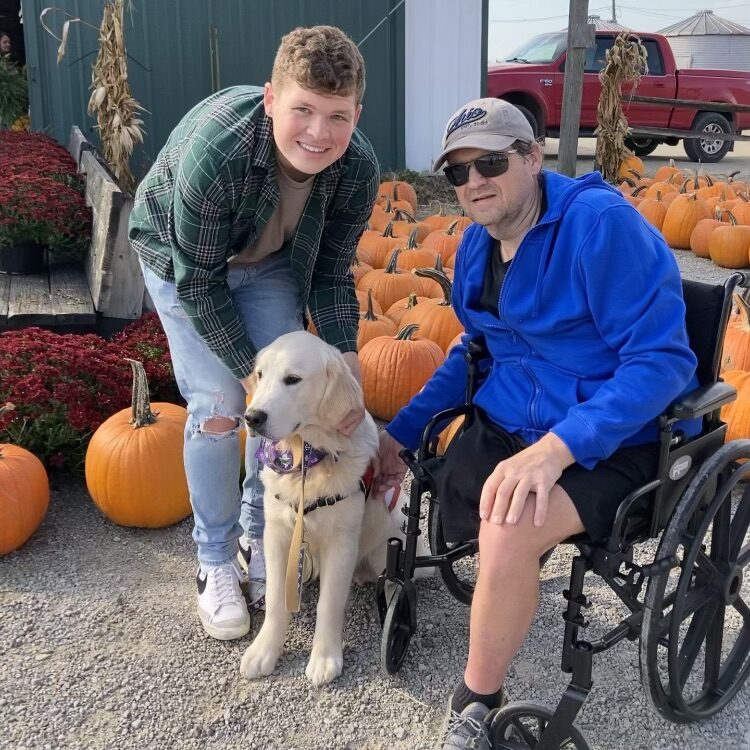
The community that I work for is lower income and people worry. People have to choose, do I put food on the table or do I go to the hospital?
Joel Clark grew up in Springfield, Ohio, and now studies at Johns Hopkins School of Nursing in Baltimore, working toward his Master of Science in Nursing. His journey into health care advocacy began with a phone call that changed everything.
During his sophomore year at Ohio State, Joel learned that his father had been hospitalized. He had always known his father was battling health issues, but things had taken a sudden and dangerous turn.
Joel’s father had long struggled to find stable employment that provided benefits. He created a lawn care business, then took up woodworking. That work, however, led to the injury that started everything when a hammer fell on his foot, splitting a bone in his toe. Already undiagnosed with diabetes, the wound rapidly worsened. His father had developed an infection in his foot and refused to seek treatment. The cost was simply too high.
“He really was didn’t want to go get seen. It was too expensive. Didn’t want to go to urgent care. All the things that you typically see with people who aren’t insured.”
His family reached a breaking point when Joel’s grandmother finally convinced his father to go to the emergency room. Joel drove an hour home and arrived at the hospital to devastating news: his father was in septic shock and would need an above-the-knee amputation.
“It was hard at the time. And they didn’t really know what would happen next… I remember us asking the doctor, like, is he going to make it? And they didn’t know.”
The next day, a social worker sat down with Joel and his grandmother and explained that his father could qualify for Medicaid. That conversation changed the course of their lives.
“It was kind of the lift off of our shoulders… Just knowing that he would not have to undergo the tremendous amount of bills that people deal with on a day-to-day basis that burden families.”
With Medicaid coverage, Joel’s father could finally access the care he needed — follow-up appointments, specialists and support that otherwise would have been out of reach.
The financial relief was immense, but the personal toll remained heavy.
Joel’s father can no longer work. He still enjoys hobbies like woodworking, but the disability changed his life. It also changed the life of Joel’s grandmother, who had just lost her husband to Alzheimer’s. Nine months later, she became the primary caregiver for her son.
“You would do something like that for your family in a heartbeat, but it doesn’t mean that it’s not debilitating and life changing for everyone else.”
Joel believes the conversation around Medicaid often ignores the people most affected by it, not just those who receive coverage, but the caregivers, families and health care workers who support them. As a nursing student, he sees the impact every day.
“My patients at the hospital, at Johns Hopkins, a lot of them are covered by Medicaid. The community that I work for is lower income and people worry. People have to choose, do I put food on the table or do I go to the hospital?”
Now, Joel channels his experience into advocacy. As a member of the Policy Honors Program at Johns Hopkins, he is preparing a one-pager to deliver to Representative Mike Carey about the importance of Medicaid to District 15 in Ohio.
Through it all, Joel remains committed to telling the truth about what Medicaid means, not in abstract numbers or budget lines, but in the lives of people like his father, his grandmother and the patients he sees every day.
Add your voice to help us continue to push for the best health and health care for all.
SHARE YOUR STORY